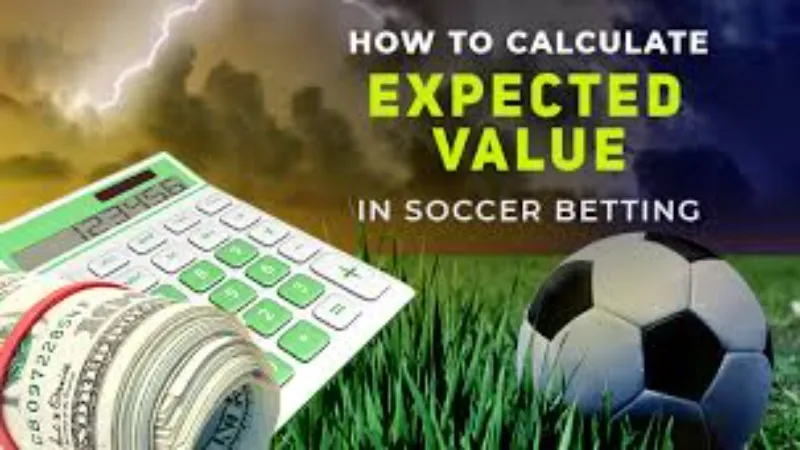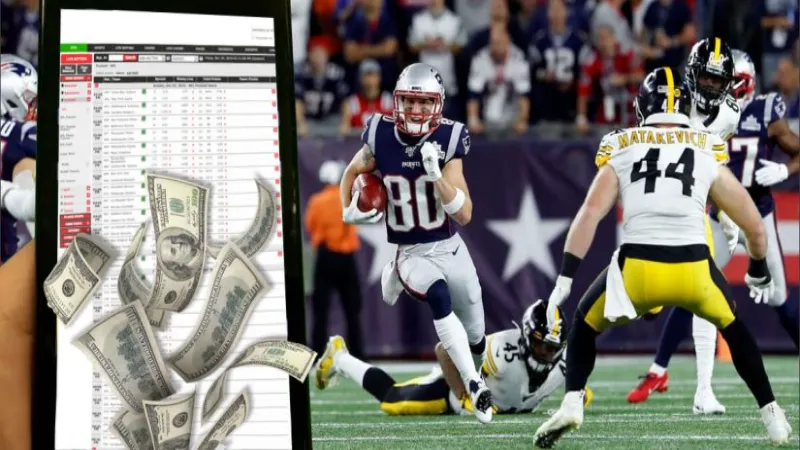Expected value is a fundamental concept in probability theory and statistics. It is commonly used to assess the average outcome of a random experiment or event. By calculating the weighted average of all possible outcomes, considering their probabilities, expected value provides a numerical representation of the anticipated result. This concept 8xbet is crucial in decision-making, as it allows individuals to make informed choices by evaluating the potential outcomes and their likelihoods.In finance, expected value is employed to determine the average return on an investment.
Expected Value: Essential Knowledge for Every Gambler and its Importance
Expected value (EV) is crucial in gambling. With a positive EV, you’re in a favorable position, while a negative EV means the opposite. Pros aim to bet only when they’re in a positive EV scenario. Yet, they can misjudge at times. Those consistently right profit over time. Conversely, those with negative EV lose eventually. Risk tolerance matters too. Even with a positive EV, you might lose often, requiring higher risk. This post delves into EV and its role in gambling decisions, alongside the impact of risk tolerance.
Calculating or Estimating Expected Value (EV) for a Bet

Estimating the expected value (EV) of a bet involves considering three key factors. First, assess your likelihood of winning, such as a 50%, 75%, or 5% chance. Second, determine potential losses if you don’t win; often, bets are even money. Lastly, calculate potential winnings, often expressed as odds ratios, like 35 to 1. Combining these factors gives your EV, crucial for professional gamblers who aim for +EV bets and avoid -EV ones.
For instance, in a coin toss bet, with equal stakes, your EV is 0, meaning you break even. However, altering the risk-to-reward ratio can lead to a +EV scenario, where winnings exceed potential losses. This principle underlies casino games, where the odds favor the house. When both parties have nonzero EV, one has +EV, and the other -EV, totaling 0. Any other sum indicates a miscalculation.
An Illustrative EV Scenario in No Limit Texas Hold’em

In Alan Schoonmaker’s book “Poker Winners Are Different,” he presents a scenario from no limit Texas hold’em where you’re dealt pocket aces in a $2/$5 game with $100. The question: how many callers are you hoping for among 9 opponents when you push all-in preflop? The instinct might be to aim for fewer callers to increase your chances of winning.
However, analyzing the expected value (EV) reveals a different strategy. With 1 caller, you win 85% of the time, but with 9 callers, it drops to 30%. Yet, considering the potential pot size, having 9 callers yields a significantly higher net win over 100 hands compared to just 1 caller. With 9 callers, the average winnings per hand are three times higher, resulting in a much better return on investment (ROI) of 200% compared to 70% with 1 caller. This demonstrates how EV analysis can guide optimal poker strategies.
Expected Value in Probability Analysis

In gambling, we focus on expected value (EV) in terms of dollars, while mathematicians view it as a broader concept related to the long-term average of results in random experiments. For instance, when considering the EV of a single roll of a 6-sided die, it’s simply the average outcome, which is 3.5. This is calculated by adding up the possible outcomes (1, 2, 3, 4, 5, and 6) and dividing by the number of outcomes (6). While the concept might seem complex in mathematical terms, for us as gamblers and poker players, it’s straightforward: it’s about understanding the average value of our actions over time.
Understanding the Implications of Expected Value for Gamblers Over Time

In the short term, expected value (EV) may not seem significant. Even with a highly +EV play, you could still lose most of the time due to variance. Savvy gamblers understand this and focus on consistently making +EV decisions, knowing that over time, they’ll profit. This principle is central to how casinos operate. They’re fine with players winning jackpots or having good runs at games like slots, roulette, or blackjack—except when it comes to card counting.
Unlike other games where players have a –EV and the casino has a +EV, card counting flips the odds, giving players +EV and the casino –EV. This is unacceptable to casinos, as it means they’ll lose money over time, and businesses aim to avoid long-term losses.
Expected value (EV) plays a crucial role
In the past, online casino signup bonuses offered opportunities for lucrative +EV situations, like receiving a $200 bonus on a $100 deposit. By using basic strategy in blackjack, players could clear wagering requirements with minimal expected losses. For instance, wagering $4500 with a 1% house edge resulted in an expected loss of $45, leaving a $155 profit on average.
However, online casinos caught on and restricted eligible games and increased wagering requirements. Shifting to slots, with an assumed 6% house edge, drastically decreased potential profits. Furthermore, raising wagering requirements from 15 to 30 times the deposit bonus made it challenging to profit. Today, finding online casino signup bonuses with a positive expected value is exceedingly rare, as casinos aim to maintain their edge and profitability.
Conclusion
Expected value is an important mathematical concept every gambler should understand, but it’s especially important for poker players and aspiring advantage gamblers.
It’s just the average amount you expect to win or lose on average on a particular bet over time.
The concept is useful because if you put yourself in positive expectation situations repeatedly, you’ll eventually show a profit. If you constantly put yourself in negative expectation situations, you’ll eventually lose money in the long run.
For recreational gamblers, that might not matter as much, but I’d suggest it still matters some. I don’t think you should be playing against a stacked deck unless you know and understand it’s stacked and how.
Understanding expected value is how you understand that.
